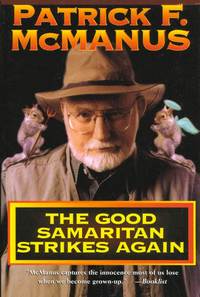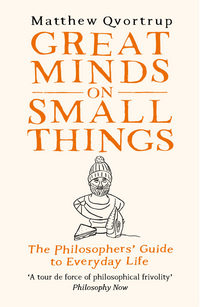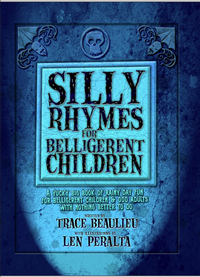So this is like a month overdue. I feel really bad about that because Andi Ewington got his Q&A responses back to me in record-time and I paid him back by dithering with this. It’s one of those I started and abandoned several times because it wasn’t right. This isn’t either, but I forced myself to actually finish it—it’s just going to get worse the more I tinker with it.
Oh, yeah, and do check in later this morning for a very nice Q&A with Ewington.
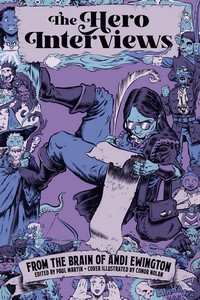 The Hero Interviews
The Hero Interviews
DETAILS: Publisher: Forty-Five Limited Publication Date: December 1, 2022 Format: eBook Length: 925 pgs. Read Date: January 20-February 11, 2023

What’s The Hero Interviews About?
The child and sibling of heroic adventurers, Elburn Barr, has taken a different path in life—one fit for someone with his particular set of skills (or lack thereof). He is a Loremaster—no spells, weapons, or danger for him, thank you very much. At this point in his life/career, Elburn has set out to understand what makes a hero tick—what is it that drives them, what early influences molded them, how do they keep going on? Does it vary from type to type? Are Barbarians made of different stuff from a Cleric or a Thief? What about a Ranger or a Wizard?
In addition to interviewing various leading examples of each type of hero, he talks to non-heroes, too. Like a farmer whose farm was saved(?) by some heroes from a dragon, the curator of a hero museum, people who run/design dungeons, etc.
We get these interviews in transcript form—with a little introduction from Elburn at the beginning of each, and maybe a little narrative about what’s going on around them during the interview, or what he does after. But primarily, it’s transcriptions of the interviews.
In addition to trying to understand the heroic psyche in general, Elburn’s hoping to understand and maybe connect with his adventurer-filled family. But he has an ulterior motive for all this—his older brother went off adventuring ten summers ago, and Elburn would like to know what happened to him. He’s hoping to find him alive somewhere but will settle for just knowing what happened.
This sounds heavy—but I should stress that this is a comedy. There’s a serious story (or three) being told, sure. But the book is a comedy.
Comic Footnotes
I’m a long-established fan of comic footnotes in novels—see what I’ve said about Josh Bazell, Lisa Lutz, Thomas Lennon, and K.R.R. Lockhaven for example. But Ewington puts them all to shame.
At least in terms of volume—there are almost 2 per page, although I’d have wagered it was higher than that (that’s an average—there are pages with several). Occasionally, it feels annoying to stop the flow of what you’re reading to check it. All I can say is that if you’re feeling that way, just keep reading and then circle back for the footnote after that bit of dialogue or at the end of the chapter—it’s not going anywhere.
On the whole, they work better in the moment without doubling back, so click the link if you’re not at the annoyed point. I did it both ways depending on my mood and can vouch for both methods. Whatever you do, don’t skip them.
You get a good sense of Elburn’s personality and attitude toward his interview subjects from the main text—but it really shines forth in the footnotes. To really understand the protagonist, you need to read them.
But your comedy-per-word ratio is higher in the footnotes, too. In the main text, comedy has to come out of the words, situations, and characters. In the footnotes, Ewington doesn’t have to do that—he can just make the joke. Frequently, that’s all it is—the joke. Neither is a superior joke-delivery method, it’s just easier to get to the funny bit in the footnote.
Audience
Anyone who’s into Fantasy to one degree or another is going to be able to appreciate most of what Ewington’s doing here. There is a pretty solid D&D-basis to everything, however, so the more you understand and/or have been exposed to the game.
The Length
There’s no getting around this point, The Hero Interviews is long. One might argue that it’s too long. I’m not sure I’d agree—but I wouldn’t disagree.
Early on (maybe around the 20% mark), I started to wonder if this thing wouldn’t work better as a trilogy. Break this into (roughly) thirds, add a 1-3 page Epilogue/Prologue to each to connect them and it’s a lot easier to digest. I think it’d work. Check out my Q&A with Ewington to see why he disagrees with that idea. I’m not entirely convinced, but at the end of the day, it’s not that important.
I do wonder how many readers will find their patience pushed by the length—I’d tell them to stick with it because it’s absolutely worth it (but taking a break every few chapters isn’t the worst idea).
A practical downside to the length is that it’s likely cost-prohibitive to publish this in paperback. This is a real shame because everyone I can think of to give this to won’t read it in ebook. (but I’m trying to think of a way to work around that)
So, what did I think about The Hero Interviews?
I hate when people drag out Douglas Adams or Terry Pratchett when talking about humorous SF/F, but I can’t get away from this one. For a long time, I’ve said that Life, the Universe, and Everything by Douglas Adams isn’t so much a novel as it is a series of comic episodes/scenes/bits trying to look like a novel.* As I’ve been trying to come up with a succinct way to talk about this book the last few weeks, I’ve decided that it’s the opposite—it’s a novel trying to look like a series of comic episodes/scenes/lines.
* I feel compelled to add at this point that I love the book, some of my favorite lines/paragraphs/ideas from Adams are in it. But it’s not a good novel.
It takes a while to see the plotlines emerge—it really does seem to be a light-hearted look at D&D clichés, stereotypes, tropes, etc. at the beginning, but eventually, you start to see the story arcs emerging and even start to see Elburn grow and develop. That’s something I didn’t expect to see when I started reading this.
If only because I have memories of interview transcripts and fantasy humor (and sadly, not much else), I expected this to feel like Off to See the Wizard by Clay Johnson, but it really doesn’t. Ewington’s ambitions are larger—and he packs more jokes into his pages. Ewington is also more interested in playing with the tropes and types of the genre, while Johnson was working within pretty well-established types.
Once I got to the interview with Gwenyn, the poor farmer with a field ruined by a dragon corpse left behind by heroes, I knew this book was for me. The Mime Warrior interview was so ridiculous that I had to love it—and I even came around to the least-Conan-like Barbarian (I admit I had a hard time with that one at first blush). Ewington both seems to embrace and relish going for the obvious joke—but the way he gets there, or what he surrounds the obvious joke with—that’s pretty special and creative. I’m not sure that makes a lot of sense, you’re just going to have to read it to see what I’m trying to communicate.
It’s really easy to see why Jodie recommended this one to me for the 12 Books Challenge, and I’m so glad she did (I wanted to, but hadn’t gotten around to buying it until she did). You should pretend that she recommended it to you, too (here, read her post about it). I mean, I’m recommending it to you—but maybe you’ll listen to both of us more than you’d listen to just me.
You’ll laugh; you’ll chuckle; you’ll grin; you’ll shake your head and roll your eyes while wondering, “Did he just find another way to make the same fireball joke?”*; and you’ll have a lot of fun. No better time than the present to go grab this, you’ll be glad you did.
* Yes, yes he did.

![]()





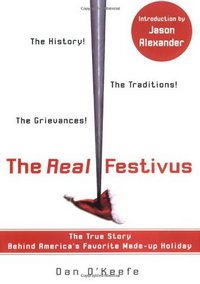

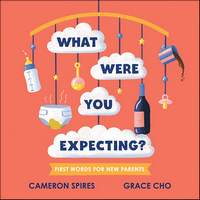



 Every time Cunk looks at non-English speaking cultures was a win.
Every time Cunk looks at non-English speaking cultures was a win.
